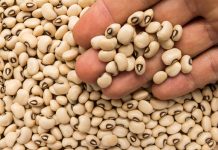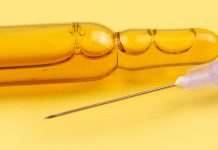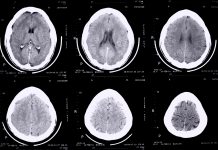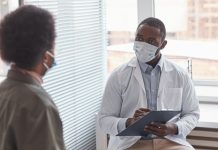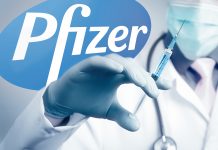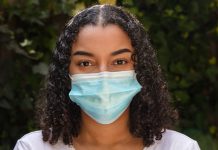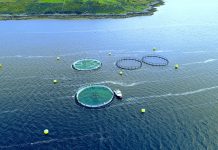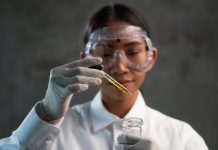Open Access Government produces compelling and informative news, publications, eBooks, and academic research articles for the public and private sector looking at health, diseases & conditions, workplace, research & innovation, digital transformation, government policy, environment, agriculture, energy, transport and more.
Home Search
node - search results
If you're not happy with the results, please do another search
How do environmental factors affect foetal development?
Associate Professor Ken Tachibana, discloses how prenatal ambient fine particle exposure disrupts DNA methylation and subsequent gene expression in the foetal development stage.
Materials approaches to achieving a net zero carbon economy
Stephen Skinner, Professor of Materials Chemistry at Imperial College London, discusses the impact of net zero carbon policies and the challenges these present for materials and systems developers.
A biotech shield for cowpea against the major insect pests
Jose M. Barrero, Donald J. MacKenzie, Richard E. Goodman and T.J.V. Higgins provide an in-depth look at what we need to know about a biotech shield for cowpea against the major insect pests.
Scientists think protein injection could be diabetes vaccine
The idea is still at an early stage, but initial clinical study results show that immunotherapy against type 1 diabetes could function as a 'diabetes vaccine.'
Scientists explore new potential treatment for epilepsy
Scientists at the University of Nottingham are exploring the potential of new treatment for epilepsy, as they reveal that neuron connections in the brain can be a good indicator of disease progression.
Study examines immune responses to COVID in patients with antibody deficiencies
A new study aims to explore the immune response to COVID-19 infection and vaccination in patients with antibody deficiencies.
Today’s challenge of treating genetic diseases
Professor Olivier Braissant highlights here, how the challenges of treating genetic diseases can be exemplified by research on creatine transporter deficiency.
Astronomy: Discovering the Universe with cutting-edge technology
Saku Tsuneta, National Astronomical Observatory of Japan, charts discoveries made about the Universe with cutting-edge technology in this fascinating astronomy focus.
Glandular fever increases the risk of depression
A new study from iPSYCH has found a correlation between glandular fever and an increased risk of depression.
What are the side effects of the Pfizer vaccine?
Here, we assess some of the most common side effects of the Pfizer and BioNTech COVID-19 vaccine.
Scientists find Pfizer vaccine is 100% effective in young adolescents
The company aim to start vaccinating children by September 2021, as clinical trials reveal that Pfizer is 100% effective in those aged 12 to 15.
Plague: The first pandemic disease
Ann G. Matthysse, Professor of Biology from The University of North Carolina at Chapel Hill, writes in detail about plague, the first pandemic disease including comment on bacteria.
IMPAQT: Supporting the sustainable development of aquaculture
Here, Coordinator of the Intelligent Management Systems for Integrated Multi-Trophic Aquaculture (IMPAQT) project Frank Kane discusses the path to revolutionising aquaculture and increasing the industry’s sustainability.
What are the side effects of the AstraZeneca vaccine?
Here, we use science to dissect some of the rumours about the side effects of the AstraZeneca and Oxford University vaccine.
Scientists are working on a new renewable energy source
Renewable energy sources are the environmentally ideal way to proceed, which includes massive lithium batteries that can be recharged - scientists are now looking to solve the scarcity problem of using lithium as a base.
Ensuring UK border resilience in a post-Brexit world
Jean-Sebastien Connell, Consultant at Atkins, discusses the need for a security and resilience strategy for UK borders in a post-Brexit world
With the UK border...
Moderna vaccine approved for use by European Medicines Agency
The EMA joins the US in approving the 94.1% effective Moderna vaccine for use, while the UK still waits on further regulatory discussions.
The development of science: A focus on computer simulations
Ignacio Pagonabarraga, Director of CECAM, lifts the lid on the field of computer simulations and the crucial role they have played in the development of science since the second half of the last century.
Beyond skin deep: The emerging science of tattoo toxicology
Jonas J. Calsbeek, Jeremy A. MacMahon & Pamela J. Lein, PhD from University of California, Davis, explain the emerging science of tattoo toxicology.
Dr Sylvie C. Briand – World Health Organization (WHO)
Dr Briand is the director of the Global Infectious Hazard Preparedness department (GIH) at the World Health Organization (WHO)
There, she is in charge of...



